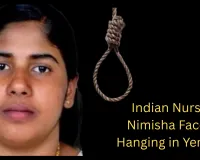Maharashtra Passes Controversial Lok Suraksha Bill
Maharashtra
.png)
The Maharashtra government has passed the controversial 'Lok Suraksha Bill', aiming to curb leftist ideologies and activities.
'Lok Suraksha Bill' has been passed in Maharashtra to impose a ban on leftist ideologies and anti-government violent activities. Amidst such controversies and opposition from the opposition, the Fadnavis government passed the 'Maharashtra Lok Suraksha Bill' in the Maharashtra Assembly on Thursday. This bill was introduced in the Assembly by Chief Minister Devendra Fadnavis. The bill provides for strict action against leftist extremism, Maoist ideologies and anti-government violent activities. Its main objective is to curb the illegal activities of leftist extremist organizations, focusing on "Urban Naxals". The bill is yet to be introduced in the Legislative Council.
Fadnavis said in the Assembly, 'The spread of leftist extremism in urban and rural areas in districts like Gadchiroli and Konkan is a threat to law and order. This bill has been brought to ban organizations spreading guerrilla warfare and violence. He clarified that this law fills the gaps in laws like UAPA, which mainly focuses on terrorist activities, while this bill will also control extremist ideologies and illegal activities related to it.
Many opposition leaders raised concerns about the bill. Bhaskar Jadhav raised the question, 'If this law is necessary for national security, then why has it not been brought in other BJP-ruled states?' Jayant Patil welcomed some amendments and said, 'We had suggested a sentence of three years or a fine of ₹ 3 lakh, in which the word 'and' has now been added. But I also remind that P. Chidambaram had brought the PMLA law, later action was taken against him under the same law.
Committee to monitor the bill
The Chief Minister said that no member of the Joint Select Committee expressed any disagreement against the bill. Introducing the bill, Fadnavis said that more than 12,500 suggestions received from the people were considered while preparing its final draft. The bill provides for an 'Advisory Board', which will be headed by a serving or retired judge of the High Court and a retired district judge and a government lawyer of the High Court as its members. Crimes registered under this law will not be investigated by an officer below the rank of Deputy Superintendent of Police (DSP). The bill was introduced in the last winter session of the Assembly and was referred to the Joint Select Committee.





.png)


.png)

1.png)

